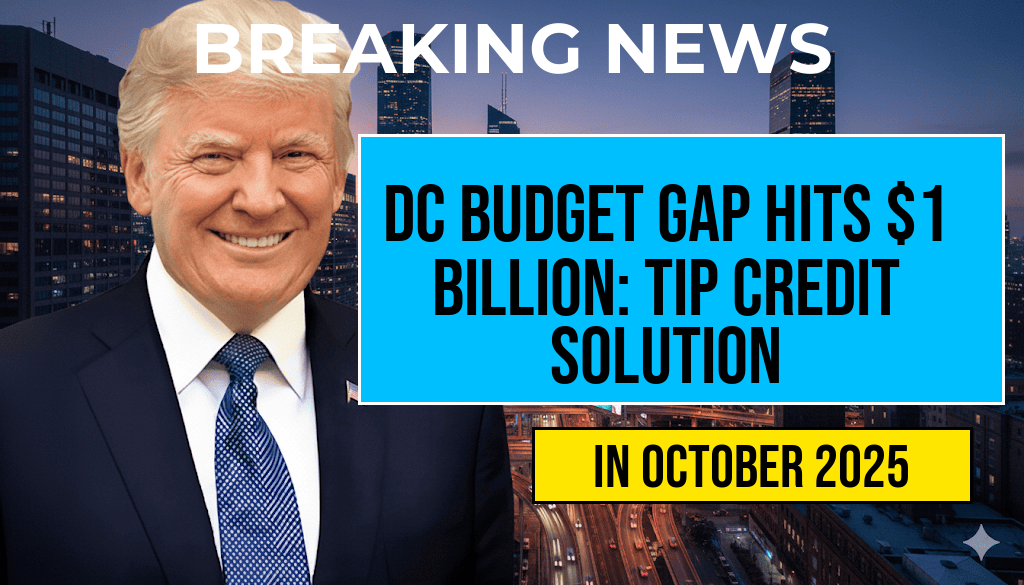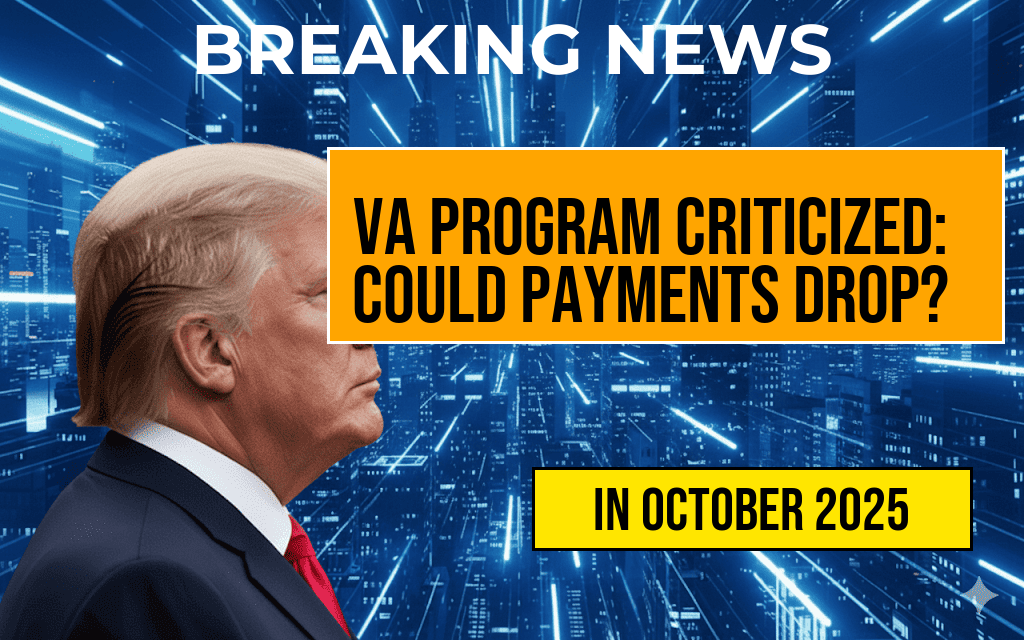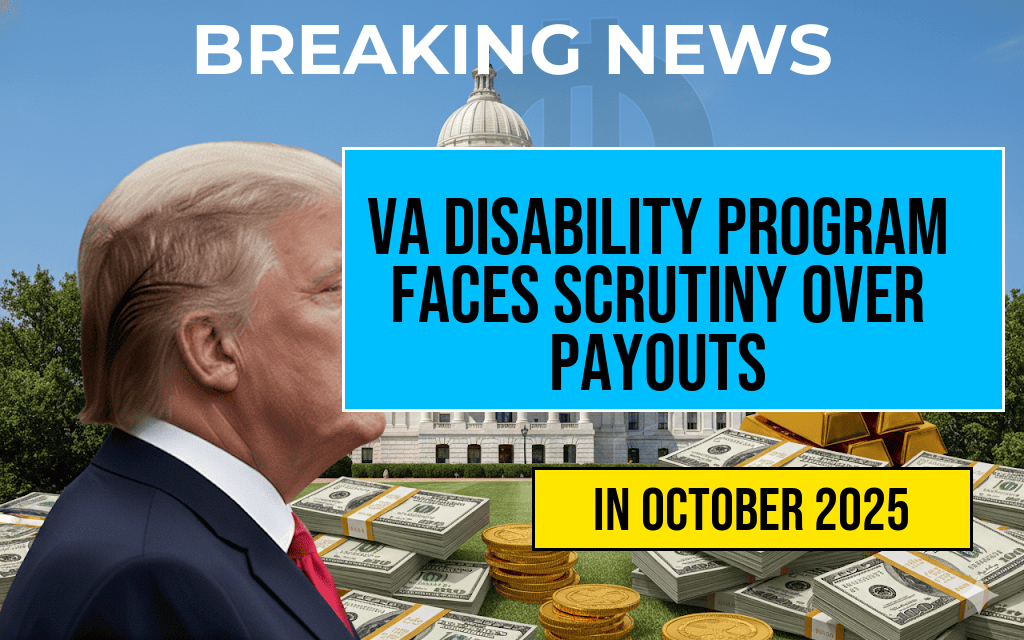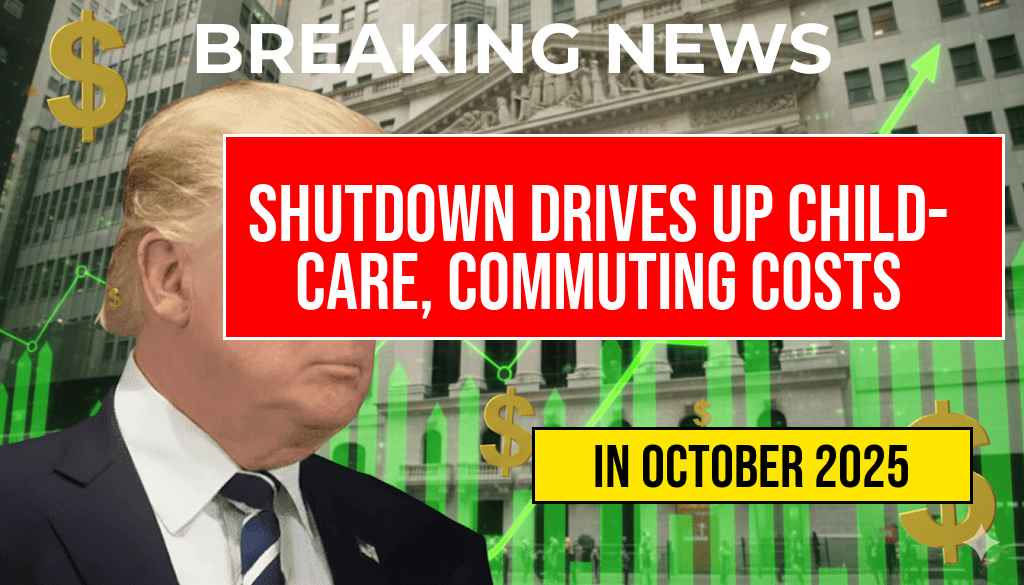The District of Columbia is grappling with a staggering $1 billion budget gap, prompting officials to seek innovative solutions to bridge the financial shortfall. Among the proposals being considered is a reversal of the existing tip credit system, which allows employers to pay tipped workers a lower base wage, provided tips make up the difference. This change could have significant implications for the city’s restaurant industry and its workforce, particularly as the minimum wage for tipped employees is set at $10 per hour. As the D.C. Council deliberates over these options, stakeholders are weighing the potential impact on both businesses and employees.
Understanding the Budget Gap
The $1 billion budget gap arises amid rising costs and declining revenues, exacerbated by the economic challenges posed by the COVID-19 pandemic. According to D.C. Chief Financial Officer Jeffrey DeWitt, the budget shortfall is the largest the city has faced in recent years, necessitating immediate action to ensure financial stability.
Factors Contributing to the Gap
- Increased public spending on health and safety measures.
- Declining tax revenues from businesses and residents.
- Rising costs of city services, including homelessness and public safety.
The Tip Credit Proposal
One of the most contentious proposals to address this budget crisis is the reversal of the tip credit system. Currently, restaurants can pay tipped employees a base wage of $10 per hour, significantly lower than the standard minimum wage of $16.10. Advocates for the change argue that eliminating the tip credit would ensure that tipped workers receive a fair wage, while opponents worry it could lead to higher menu prices and reduced employment in an already struggling industry.
Arguments For and Against Reversing the Tip Credit
| Supporters | Opponents |
|---|---|
| Ensures fair wages for workers. | Higher labor costs may lead to job losses. |
| Reduces reliance on unpredictable tips. | Potential for increased menu prices. |
| Improves financial stability for tipped employees. | Could harm small businesses struggling to survive. |
Impact on the Restaurant Industry
The D.C. restaurant sector, which has been hit hard during the pandemic, faces an uncertain future if the tip credit is abolished. Many industry leaders fear that raising wages without corresponding increases in tips could result in higher prices for consumers, potentially reducing patronage. The National Restaurant Association has pointed out that a significant portion of restaurant workers relies on tips to supplement their income, making any changes in wage structure a critical issue.
Response from Restaurant Owners
Restaurant owners have voiced their concerns about the potential consequences of reversing the tip credit. “We are already seeing thin margins and rising costs across the board,” said Tom Meyer, owner of a popular D.C. eatery. “If we’re forced to increase wages without the offset of tips, we will have to make tough decisions about staffing and pricing.”
Reactions from Workers
On the flip side, workers and labor advocates argue that fair compensation is paramount. “The pandemic showed us how essential tipped workers are to our economy,” said Maria Lopez, a server at a D.C. restaurant. “We deserve to be paid fairly for our hard work, and this is a step in the right direction.”
Future Considerations
As the D.C. Council continues to deliberate, numerous questions remain about the feasibility and implications of reversing the tip credit. The council is expected to hold public hearings to gather input from both sides of the debate. The outcome could set a precedent for other jurisdictions facing similar budgetary constraints.
Conclusion
The proposed reversal of the tip credit amidst a $1 billion budget gap in D.C. highlights the complex interplay between wage policies and economic realities. As the council moves toward a decision, the implications for both workers and the restaurant industry will undoubtedly be closely monitored. For more information on D.C. labor laws and budgetary issues, visit the [D.C. Department of Employment Services](https://does.dc.gov) and the [D.C. Fiscal Policy Institute](https://www.dcfpi.org).
Frequently Asked Questions
What is the current budget gap in DC?
The DC budget gap has reached an alarming $1 billion, prompting discussions on various solutions to address this financial shortfall.
What is the proposed solution to address the budget gap?
One of the proposed solutions is the reversal of the tip credit, which may significantly impact the earnings of tipped workers in the district.
How does the tip credit affect tipped workers’ wages?
The tip credit allows employers to pay tipped workers a lower base wage, with the expectation that tips will make up the difference to reach the minimum wage. Reversing this could lead to a higher minimum wage for these workers.
What are the implications of reversing the tip credit on the tipped wage?
Reversing the tip credit could result in a new $10 tipped wage, which may improve earnings for tipped workers but could also lead to increased costs for employers and potential job losses in the hospitality industry.
How might the budget gap and proposed changes affect DC’s economy?
The combination of a $1 billion budget gap and the proposed reversal of the tip credit could have significant implications for DC’s economy, including shifts in employment rates and changes in consumer behavior in the service industry.








